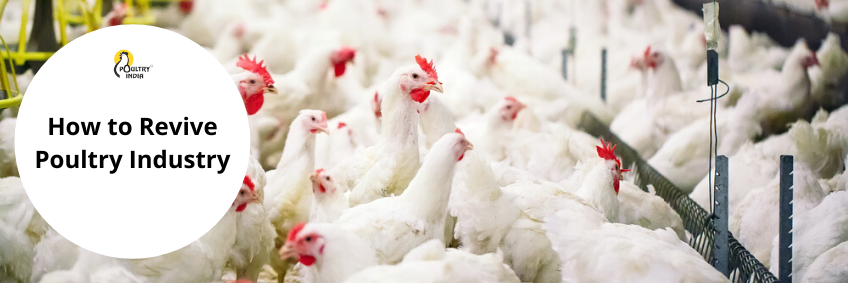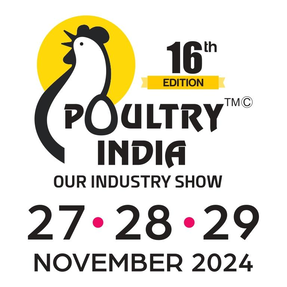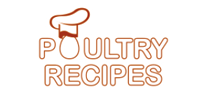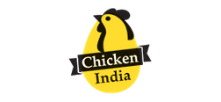How to revive Poultry Industry

The state has about 12,000 poultry farms which produce nearly 50 lakh chicks every day. The daily turnover is Rs 50 crore. This includes the supply of broiler and eggs in Ghazipur mandi of Delhi and sale of one-day-old chicks to poultry farmers in Uttar Pradesh, Maharashtra, and other areas. So far, it is believed the industry has suffered losses to the tune of Rs 2,500 crore because many people stopped eating non-vegetarian food much before the lockdown kicked in. Raja Sekhar Vundru, principal secretary, Animal Husbandry and Dairying Department, Haryana, has, however, issued a letter ordering that all municipal and rural bodies should allow sale of eggs, poultry meat, meat and fish as an essential commodity. Vundru also directed authorities to spread awareness on consumption of these items in their respective areas. These products are immunity boosters, and their sale should not be stopped, said the letter.
Following this directive, Haryana is set to launch educative programmes across the state regarding the benefits of building strong immunity against any viral infection. Senior Haryana officers say that it is highly important to counter the vicious propaganda on social media against poultry products, which has put the livelihood of thousands of poultry farmers and their families at stake. Haryana has also proposed that a major step to revive the poultry industry can be the reduction of GST on egg powder and egg liquid, pasteurised and hygienically packed. Haryana has expressed concern that at present, poultry farmers are not incentivised to opt for processing eggs as powder or liquid because the GST levied on processed product is 28 per cent. Haryana has proposed to GST Council that the tax levied on egg powder or egg liquid should be brought down. The state has urged the GST Council that if tax rate on processed egg is lowered, poultry farmers shall be incentivised to install egg processing machines. That way, they won’t be hit by any temporary drop in the sale of eggs. They shall be able to store eggs for a longer time and supply it for diverse uses at a later time. This will help in the revival of the industry.
Haryana’s decision to educate consumers regarding the benefits of eggs and chicken, and also push for lower GST on processed egg has led to hope across the poultry industry of the country, which is waiting for other states to follow suit and educate people accordingly. For the last few months, the industry has been reeling under heavy losses following misinformation that the consumption of eggs or chicken could lead to the coronavirus infection. These rumours had started circulating on social media in early January, after reports of the severe crisis in China started getting reported. By February, the situation had turned so dire that panicked stakeholders of the poultry industry urged the government to clear the misinformation which was leading to a crash in poultry prices.
On February 10, the Union Ministry of Animal Husbandry clarified that chicken could be considered safe as no report had confirmed its involvement in the virus outbreak. Despite this, the misinformation campaign continued unabated over social media. On March 9, Union Minister of Animal Husbandry, Dairying and Fisheries Giriraj Singh admitted in a news report that the poultry industry was losing Rs 1,500-2,000 crore daily on account of rumours about Covid-19. The slide continued unabated. On March 19, a report published in Poultry World said, “India’s poultry industry has been losing US$ 1.5 million per day due to lower prices. Since early-January, farmgate prices of broiler birds in Maharashtra have halved, whereas in neighbouring Karnataka, retail prices of poultry have dropped from US$ 0.67 to US$ 0.10 in the state.”
The report said that millions of small poultry farmers across the country were reeling after sales crashed 80 per cent over false claims that chickens are carriers of the coronavirus. States of Maharashtra, Tamil Nadu, Telangana, Karnataka, Odisha, Andhra Pradesh, and Haryana – the poultry hubs of the country, seemed worst affected, with farmers resorting to panic sales, and some even going as far as culling chickens. On April 2, Anup Kalra, executive director Ayurvet, said in a webinar conducted by All India Farmers Alliance (AIFA) that the price of an egg had fallen as low as Re 1 at places, and chicken was selling at Rs 20-25 per kilo. The cost of production of chicken stood at Rs 75 per kilo approximately for the poultry farmer, said Kalra.
Amid cries for help, poultry farmers are seeking government assistance, stating that the Covid-19 crisis appears to be more widespread in India than the bird flu outbreak of 2006, which was restricted to the western part of the country. The report on Poultry World said that despite multipronged efforts from poultry players and the Ministry of Animal Husbandry to quell the rumours and to spread awareness, the situation did not seem to have improved.
If we can educate citizens about the health benefits and immunity boosting features of the Eggs and Chicken, it might help the industry battle this Covid-19 fight a little better.









.jpg)



